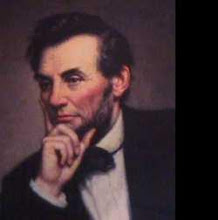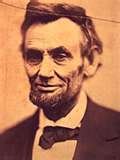 Happy New Year. On this day in 1863, Lincoln issued the Emancipation Proclamation. He had informed his cabinet as early as July, 1862, that he intended to free the slaves in the Confederate states. However, his cabinet persuaded him to wait until a Northern victory because it would seem less like a desperate measure. Antietam served that purpose. Five days afterward, on September 22, Lincoln issued the first, or preliminary, Emancipation Proclamation.
Happy New Year. On this day in 1863, Lincoln issued the Emancipation Proclamation. He had informed his cabinet as early as July, 1862, that he intended to free the slaves in the Confederate states. However, his cabinet persuaded him to wait until a Northern victory because it would seem less like a desperate measure. Antietam served that purpose. Five days afterward, on September 22, Lincoln issued the first, or preliminary, Emancipation Proclamation.The final proclamation, issued on January 1, 1863, freed the slaves only in the states that had rebelled: Arkansas, Texas, Mississippi, Alabama, Florida, Georgia, South Carolina, North Carolina, and parts of Louisiana and Virginia.
The president issued the proclamation under the powers granted during war to seize the enemies’ property. Ironically, Lincoln only had the authority to end slavery in the Confederate states, and then the slaves were freed only as the Union armies made their way throughout the South. In the states remaining loyal to the Union, slavery was protected by the Constitution. Slavery was only com pletely abolished in the United States by the 13th Amendment to the Constitution, which was ratified in 1865.
pletely abolished in the United States by the 13th Amendment to the Constitution, which was ratified in 1865.
 pletely abolished in the United States by the 13th Amendment to the Constitution, which was ratified in 1865.
pletely abolished in the United States by the 13th Amendment to the Constitution, which was ratified in 1865.Many see the Emancipation Proclamation as a political statement only, since it did not immediately free any slaves. However, it is questionable that the 13th amendment would have come about at all if the the goal of the Civil War had not been so eloquently redefined by this single most important document.
In its wake, black soldiers were accepted on an equal par with their white colleagues. By the end of the war, some 200,000 freed Blacks had enlisted as soldiers and sailors in the Union army and navy.














